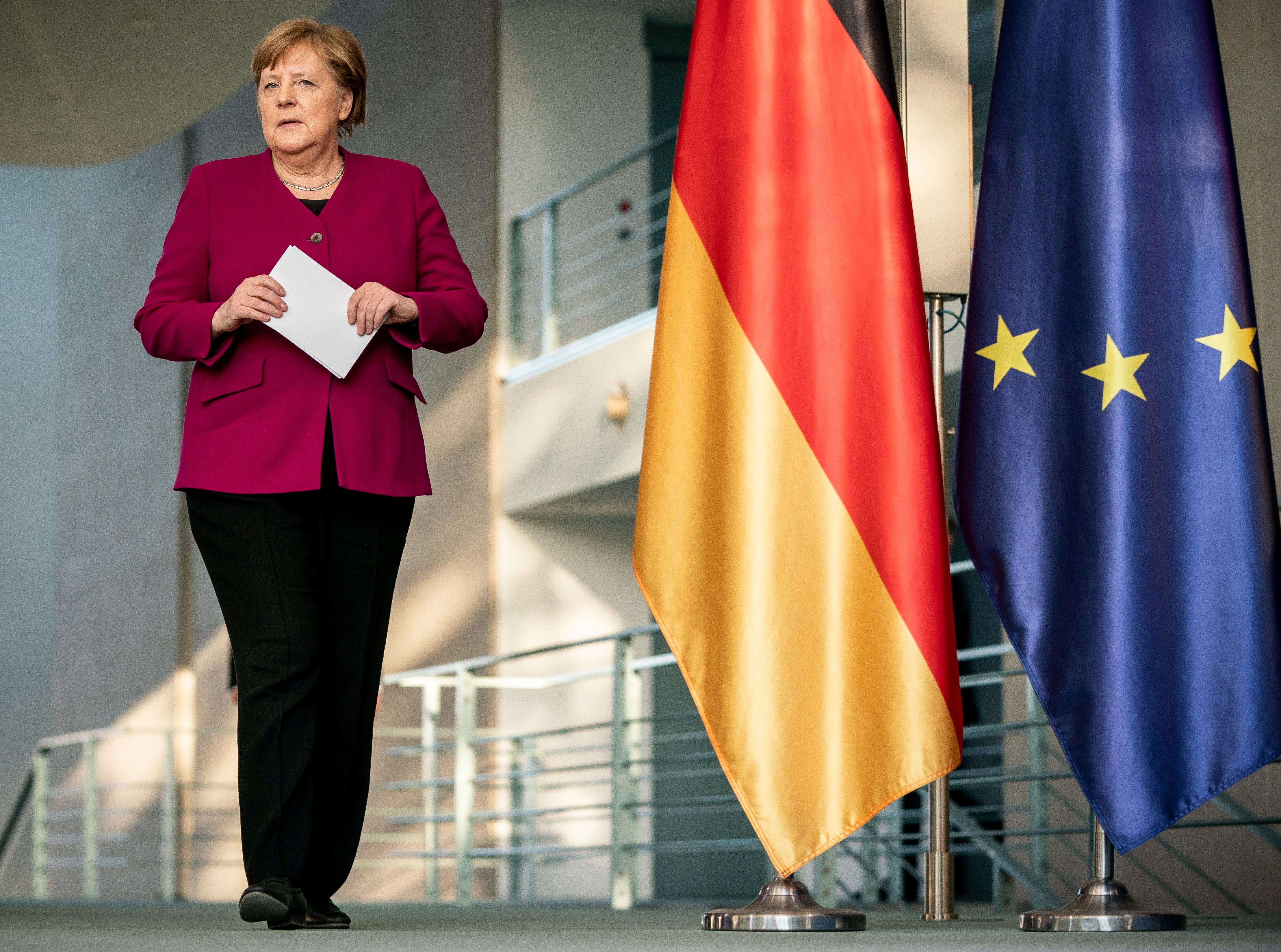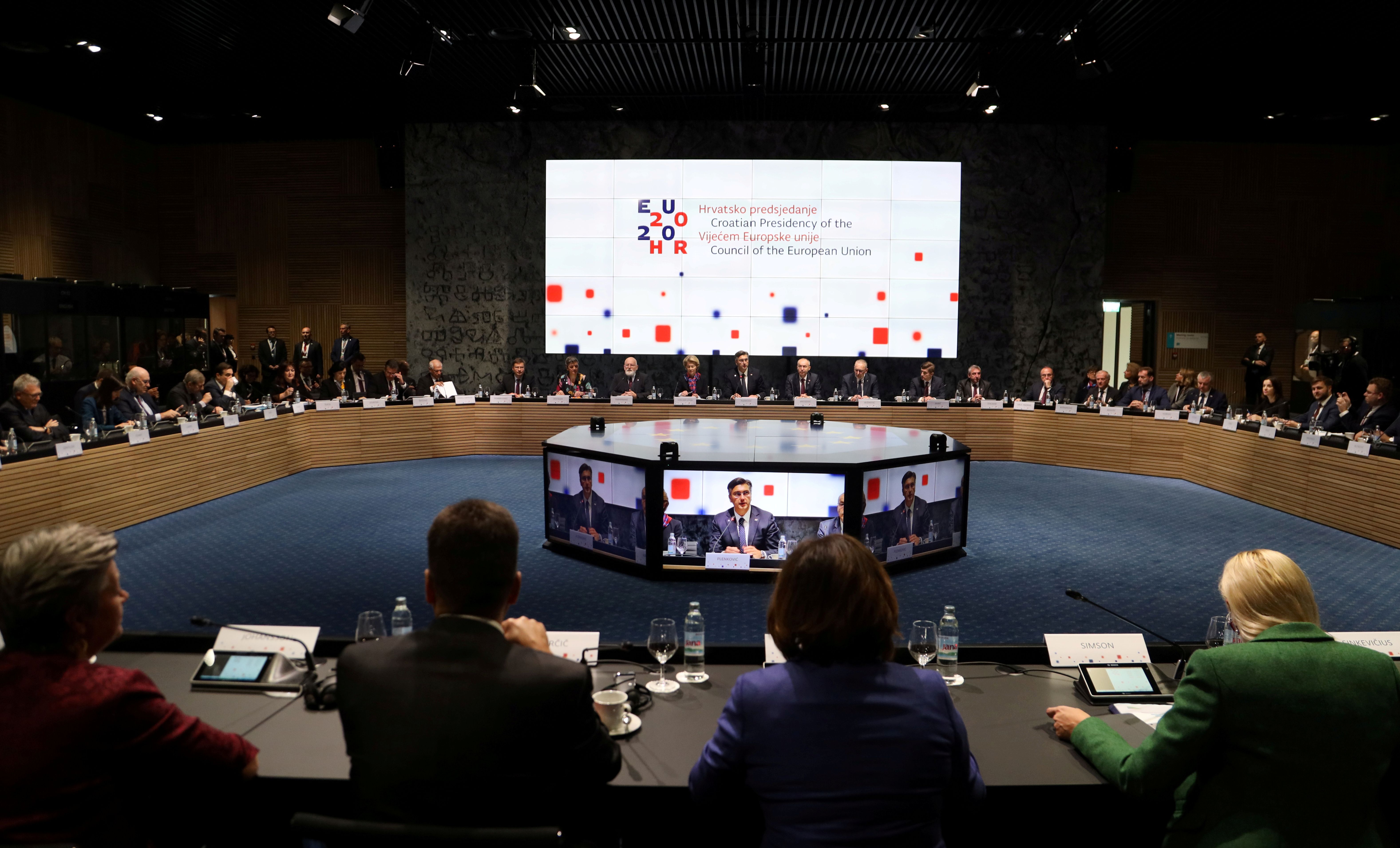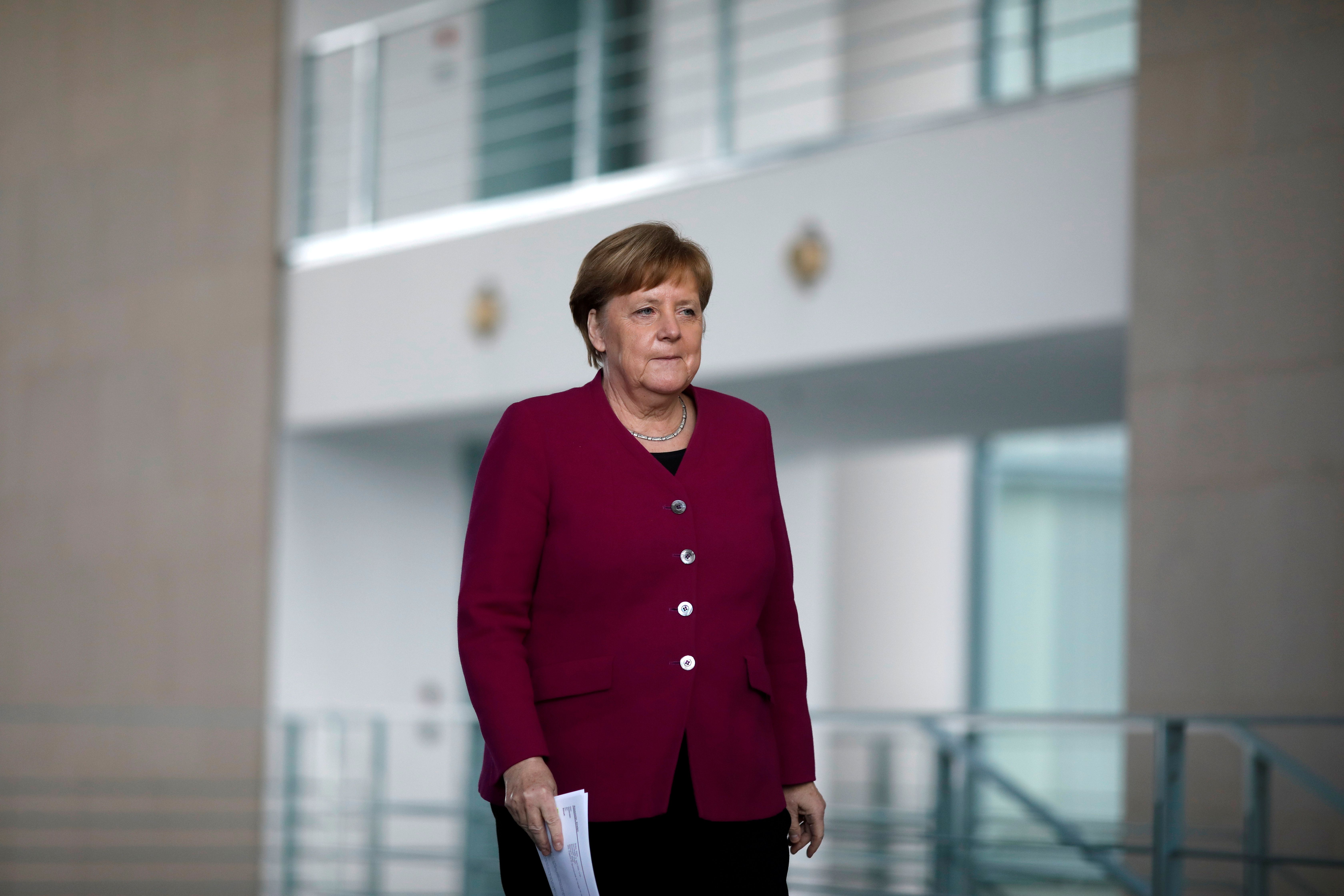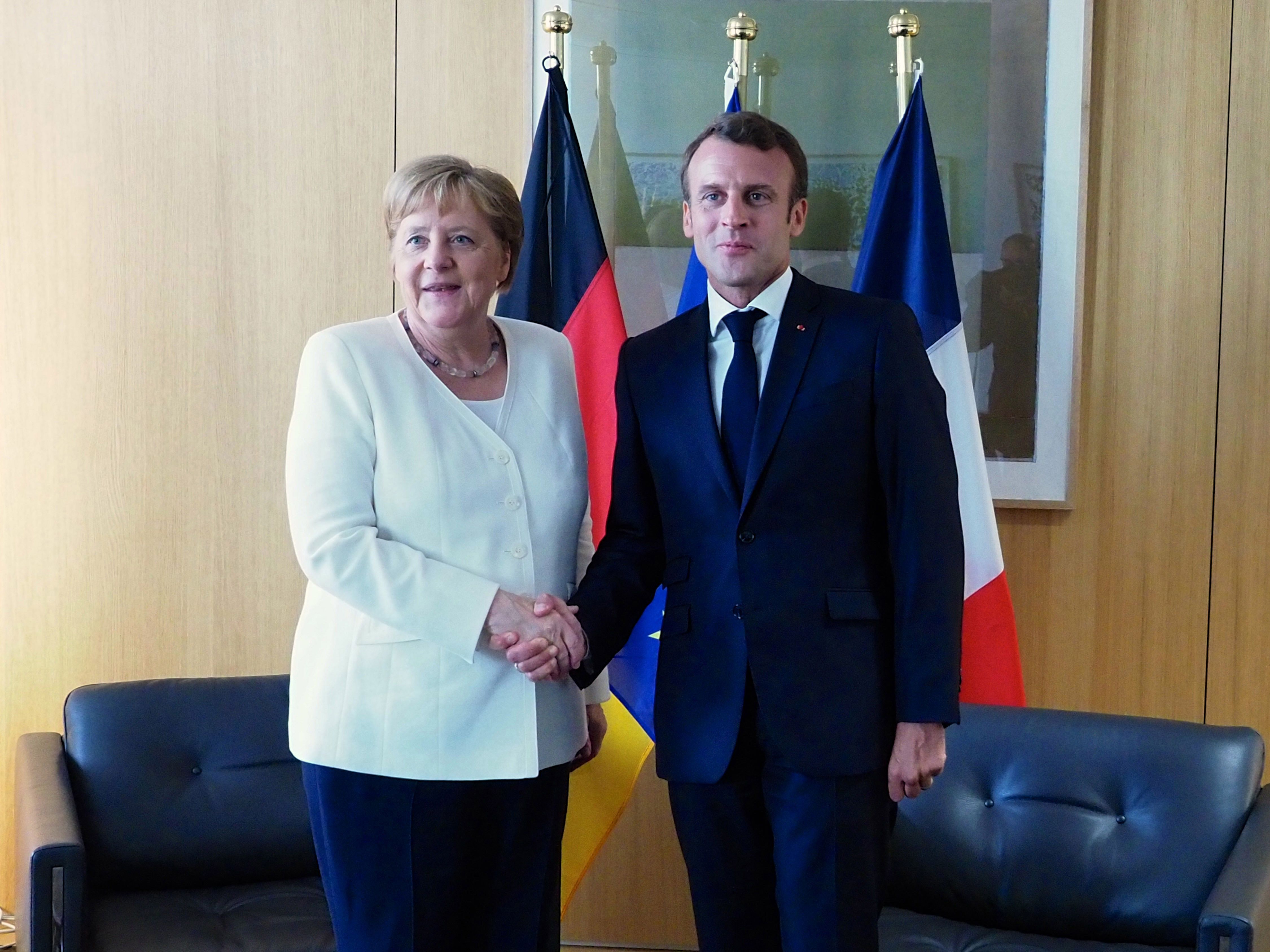
The announcements regarding the plans of the German presidency of the EU suggest that the German government will focus on finishing the negotiations on the Multiannual Financial Framework (MFF) for 2021-2027, the future of relations with the UK after Brexit, climate and digital policy, and EU-China relations. The pandemic forced the federal government to review these plans. Although Germany has not yet presented the final plan of its presidency, statements by Chancellor Angela Merkel and Foreign Minister Heiko Maas indicate that Germany will try to act in two directions, combining anti-crisis measures with goals enumerated before the coronavirus outbreak.
Challenges for the German Presidency
The most serious problem Germany will face during its presidency will be the EU’s economic downturn. According to IMF forecasts, eurozone GDP will fall by 7.5% in 2020 and by 4.7% in 2021. The crisis will weaken the countries of southern Europe the most because they are still recovering after the 2008 financial crisis—forecasts indicate that Italy’s GDP will shrink by 10–15% and Spain’s by 3.5–5%.
Due to the weakening of Member States’ economies, the challenge of competition from non-EU countries is growing. In April, the deputy head of the European Commission, Margrethe Vestager, appealed to EU governments to block acquisitions by companies from China. Despite the declining level of Chinese foreign direct investment (FDI) in the EU, China is still active on European markets. According to the Merics think tank, China’s FDI was €17.3 billion in 2018. The main areas of investment were the UK (24% of Chinese FDI in the EU), Germany (12%), France (9%), and Northern European countries (26%). Falling share prices may encourage the acquisition of companies in industries such as automotive, financial services and biotechnology, which have previously enjoyed great interest from Chinese investors. Amid the COVID-19 pandemic, the EU is also challenged by the break in supply chains, especially those connecting European markets with China. For European companies, the problem will be the decrease in consumption in China, which means a decrease in exports to that market.
There are also concerns about the consequences for the functioning of the EU common market after Member States unilaterally introduced border controls and embargoes on the export of medical products, undermining the principle of European solidarity. In addition, the EU’s limited competence in the area of public health gave the impression of inaction, which led to disappointment among Member State societies.
Old and New Goals
In view of the challenges COVID-19 poses for the EU, the German government has been forced to reformulate its presidency plans and focus on combating the effects of the pandemic. Germany will focus on building a majority for the EC project regarding the EU’s economic recovery plan or a modified version. The MFF 2021–2027 negotiations will be the framework for achieving this goal. The direction is set by the plan announced on 18 May by Germany and France to finance the economic recovery of the Member States after the COVID-19 crisis. The issuance of joint EU bonds totalling €500 billion, secured by contributions from Member States, may become a kind of compromise between the EU’s North and South in the dispute over the method of financing the EU economic assistance plan. In addition, areas where, according to the German-French plan, funds from the assistance programme would be directed, would help to finance the proposals of the German presidency. These include support for national health systems. Among the initial ideas of the German authorities was the creation of a pharmaceutical strategy that would prevent shortages and secure supply chains of medical products, independence from the import of active substances from outside the EU, as well as expanding intensive-care units and increasing the number of medical personnel in the Member States.
Among the ideas mentioned in the plan presented by Chancellor Angela Merkel and President Emmanuel Macron is the European Green Deal. Even before the pandemic, Germany indicated that it would support the EC’s implementation efforts, such as the EU Action Plan for the Circular Economy, enabling the longest possible use of resources once used, as well as projects concerning offshore energy. So far, no specific initiatives have been announced in Germany’s plans for the second half of 2020. It is possible that one of them will be the popularisation of hydrogen as an alternative, low-carbon energy source.
Another area is digital policy. The proposals mentioned by Foreign Minister Maas include the creation of EU regulations regarding the development of artificial intelligence and the use of data. In addition, Germany will support the development of the European IT industry, which is intended to build EU digital sovereignty and greater independence from technology imports from China and the U.S. EU industrial policy will also remain in Germany’s plans. Germany is one of the Member States most interested in protecting the common market against unfair external competition and financial support for new technologies. The German government may use its presidency to try to revise antitrust policy, which would help to create the so-called European Champions. An important point of the German presidency would also be reform of EU asylum law. In December 2019, Interior Minister Horst Seehofer proposed that international protection seekers should be sent to different EU countries where the asylum application would be examined.
During the German presidency, negotiations on the future relations of the EU with Great Britain should take place. By 31 December, when the transitional period ends, the EU and the UK should conclude appropriate agreements, especially in the area of trade. In view of the very high probability that the negotiations will not be extended beyond 2020, the German presidency will have the burden of proposing an EU-British compromise in the fall. Until now, the German government had been planning to focus on the EU’s relations with China. The EU-China summit in Leipzig planned for September will probably take place in the form of a video conference. However, the Chinese authorities’ focus on the fight against the coronavirus reduces the chances of concluding negotiations on a comprehensive investment agreement between China and the EU during the German presidency.
Conclusions
In view of the ongoing pandemic, the central point of the German presidency and the most serious challenge for it will be the negotiations of the MFF 2021–2027. On the one hand, Germany’s presidency of the EU Council, in conjunction with its status as the strongest EU economy and the largest payer into the Union’s budget, is conducive to shaping the future aid plan in accordance with its principles of fiscal discipline and considering in the new budget larger investments for climate policy and digitisation. On the other hand, the German government will have to convince the other members of the North of the value of the European bonds, as they want to avoid creating common eurozone fiscal tools. The expectation that Germany will be able to persuade all parties to compromise is high. The lack of an agreement during the presidency of a key EU state would indicate a serious crisis in the Union.
The presidency of Council of the EU is also important for German internal policy. It can contribute to the fairly good assessments of the government’s response to the pandemic and thus consolidate the CDU/CSU-SPD government, pushing coalition disputes to the background. Germany’s role in creating the EU’s economic recovery plan also strengthens Merkel on the German and EU political scene. A positive assessment of the German presidency may help the Christian Democrats maintain high ratings and increase the result in next year’s elections to the Landtags and Bundestag.







